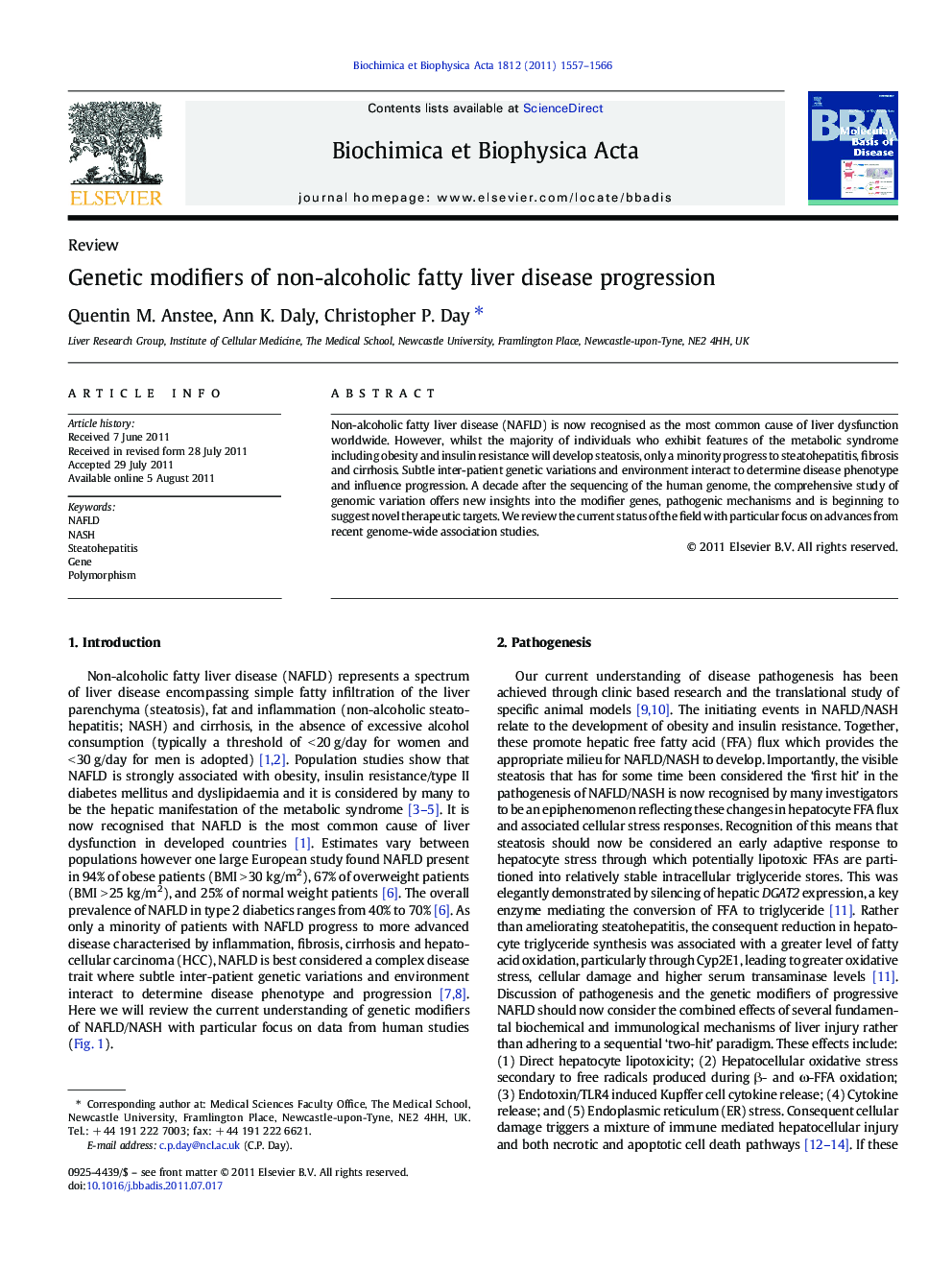| Article ID | Journal | Published Year | Pages | File Type |
|---|---|---|---|---|
| 1905128 | Biochimica et Biophysica Acta (BBA) - Molecular Basis of Disease | 2011 | 10 Pages |
Non-alcoholic fatty liver disease (NAFLD) is now recognised as the most common cause of liver dysfunction worldwide. However, whilst the majority of individuals who exhibit features of the metabolic syndrome including obesity and insulin resistance will develop steatosis, only a minority progress to steatohepatitis, fibrosis and cirrhosis. Subtle inter-patient genetic variations and environment interact to determine disease phenotype and influence progression. A decade after the sequencing of the human genome, the comprehensive study of genomic variation offers new insights into the modifier genes, pathogenic mechanisms and is beginning to suggest novel therapeutic targets. We review the current status of the field with particular focus on advances from recent genome-wide association studies.
► NAFLD/NASH is a common, progressive liver disease. ► Subtle inter-patient genetic variation and environment influence disease progression. ► GWAS and candidate gene studies have identified several genetic modifiers. ► Polymorphisms in PNPLA3 have been identified and replicated in several studies. ► Understanding the genetic basis of disease will suggest novel therapeutic targets.
